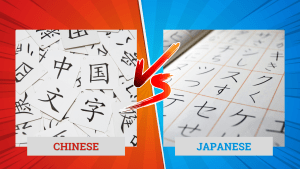Japan is the world’s 3rd largest economy, which always catches global eyeballs with its impressive growth. Therefore, this makes it a major player in the game of global business and entrepreneurship. Japan offers vast opportunities across prominent sectors such as technology, automotive, manufacturing, consumer goods, and more. But grabbing the opportunities and leading to ultimate success with Japanese counterparts is not everyone’s cup of tea. It necessitates a deep understanding of Japanese business culture.
And believe us, a small misstep can impact trust, damage relationships, and slow down deals. But with the right knowledge and valuable tips, it becomes easier to build strong and lasting partnerships. This guide exactly talks about how you can adapt their Japanese business etiquette and win hearts and deals both at one go.
Japanese Business Culture and Etiquette
Japanese culture has inspired the world for a very long time. Indeed, the culture places tremendous emphasis on harmony, respect, and relationships in all interactions. But when it comes to Japanese business culture, these points are particularly pronounced in their business settings. In light of this, let’s take a recap on some of the key etiquette before entering the great Japanese business market.
Hierarchy Equals Respect
The idea of hierarchy is deeply rooted in business culture in Japan. Everything from meeting speaking orders to seating arrangements is influenced by this hierarchy-conscious atmosphere.
- Age and seniority matter: Japanese companies generally respect an individual’s age and many years of service. It is the opposite of Western companies, where promotion is generally determined by an individual’s performance.
- Decision-making flows from top to bottom: Certainly! Senior executives make final decisions, though the process frequently requires consultation at the various levels of the organization.
- Addressing people properly: Respectful addressing is very important. Family names with the “-san” suffix (“Tanaka-san,” for instance) should be used normally. Higher-ups may also be addressed respectfully as “-sama.”
Tip: If you are unsure who really holds the top position. Then, note whom people defer to or whom they allow to speak first. In Japanese business culture, seating arrangements do show the rank of participants in meetings. The guest sits furthest from the door, while the highest-ranking host sits somewhere opposite.
Exchange of Business Cards: Meishi
Now, let’s talk about another basic and crucial Japanese business etiquette that you can’t ignore. Yes, the giving and receiving of cards is thought not to be just another formality but an important ritual in Japan.
- Give and receive cards with both hands: This act shows respect for the individual and their professional persona.
- Examine the card with care: Please, take time to read the card. This is a fantastic method to convey that you are interested in the individual.
- Keep cards on the table during meetings: Never immediately stash a card in your pocket or write on it.
- Carry enough cards: It could be unpleasant to run out of cards on important business visits. If you genuinely appreciate business culture in Japan. Then, carry plenty of cards with you.
- Think about bilingual cards: Having your information in English and Japanese shows that you are prepared and respectful.
Meeting Protocol: Serve a Meaning
Japanese business etiquette for meetings follows specific patterns that might be very different from Western ones.
- Punctuality comes first: Yes, it’s true. Being a few minutes late in Japanese business culture will hurt your reputation. Still, it is always best to arrive at least 5 to 10 minutes early.
- Silences are not to be filled in: Participants will normally use those “silences” purposely in Japanese business meetings to signal that reflection is going on.
- Patience accompanying decision-making: To Westerners, the consensus-building process (nemawashi) could look somewhat lengthy, but it is utterly essential to Japanese business.
Non-Verbal Communication: Silence Carries Words
In Japan, what remains unsaid often carries as much weight as spoken words. Yes, silence is not awkward if you’re dealing with a Japanese partner. Japanese culture values silence.
- Bowing etiquette: A bow’s duration and depth express different levels of respect. As a foreign client, you respectfully nod or slightly bow. It shows respect towards their unique culture, which is generally acceptable.
- Facial expressions matter: The Japanese value emotional restraint in business settings. Excessive emotion may be viewed as unprofessional.
- Personal space: Maintain appropriate physical distance during conversations.
Dress Code: Professionalism Is a Top Priority
Business culture in Japan is slightly unique and caught the spotlight worldwide a while ago. If you don’t know, then let us tell you. In Japanese culture, modest clothing with muted hues is valued. Revealing clothes don’t suit the overall business culture of Japan and hamper their basic etiquette in business settings.
- Accessories: Always remember, less is more. Carrying minimal and elegant accessories is preferable to flashy items.
- Shoes: Avoid being lazy and clean your shoes before the meeting. Since you might have to take your shoes off in some places, it is preferable to wear well-polished shoes.
Gift-Giving Practices: Compassion Over Everything
Gift exchange plays a significant role in relationship building in Japanese culture.
- Quality over quantity: The presentation and quality of gifts matter more than monetary value.
- Proper wrapping: Aesthetically pleasing wrapping is essential. Avoid white wrapping paper, which is associated with funerals.
- Appropriate timing: Gifts are typically exchanged after meetings or business dinners.
If you want to know about Japan’s distinct business culture and how different it is from the West. Then, you must read more about it on our blog: Cultural Differences Between the West and East.
Tips for Doing Business in Japan
Till now, we have become familiar with the Japanese business culture. But understanding Japanese business etiquette is only halfway crossed.
Hence, knowing the following practical tips can help you successfully crack a good Japanese deal while creating a strong cultural impact on your counterpart.
Tip 1: Build Good Relationships Before Business
Trust is the foundation of long-lasting relationships in Japanese business culture. We agree it might take multiple meetings, social outings, and informal conversations before negotiations begin. However, it will give you many fruits in terms of dividends. Therefore, take this advice seriously, be patient, and invest in relationships that work for you.
Tip 2: Always Communicate with Clarity and Humility
In Japanese culture, clear and simple language is significant. It’s better to keep the tone formal and professional. Avoid humor, idioms, or casual expressions that may not translate well. Adding on, direct criticism is also generally avoided in business meetings. Hence, humility is highly respected. To keep your communication professional and effective, you should utilize visual aids, translated materials, and professional Japanese translation services to ensure your message is culturally appropriate.
Tip 3: Decision-Making Process Takes Time
Decision-making in Japan is consensus-driven and includes inputs from different departments and levels. Therefore, depending on the magnitude of the decision-making, the cases may take a bit of time until which pronouncement arrives. After it is made, it will abide as a firm decision.
Hot Tip: Don’t press for quick answers. Furnish ample documentation, express understanding, and allow them time for internal discussions.
Tip 4: Localize Your Communication and Products
Let’s admit it. The correct tone or message is frequently not conveyed by direct translations. Moreover, companies entering the Japanese market must also localize their products and communication to meet consumer expectations and cultural standards.
Tip: Read our guide on Product Localization to better understand the importance of this step.
Tip 5: Pay Attention to Cultural Variations in Contracts
Japanese contracts often serve more as records of agreement than binding legal frameworks. Mutual trust and a relationship are the foundation of true commitment. Therefore, legalistic or overly rigid approaches may be viewed as confrontational.
Tip: Keep contracts clear but flexible. Reinforce agreements with ongoing communication and relationship-building.
Moving Forward
Let us be honest with you. Succeeding on Japanese land requires more than a good product or service. Instead, it demands deep respect and understanding of Japanese culture. Hence, taking effective localized translation services becomes significant to reach the heights you want in such a deep-rooted cultural environment.
Here, EC Innovations can help you, as it is a global trusted language solutions provider. It specializes in high-quality and culturally appropriate Japanese translation services. Our top-notch team of native linguists and cultural consultants is here to serve you and ensure that your business communications are perfectly translated. At the same time, we aim to create an impact on the Japanese audience. Don’t think twice when you get the best thing at a good price. Just contact us today to discuss how our expertise can support your business goals in Japan.





